How to Say “I am Vegan” in 100 Different Languages
I can speak three languages, or let’s say two because j’ai forgot beaucoup de mon French, unfortunately.
Three out of 6,500 worldwide. Well, that’s not a number I could brag about I guess. 😀
I’ve always been extremely fascinated by all the different languages that exist tho. Honestly, if I had to choose one superpower – it would be the ability to be fluent in every single one of them.
As an avid traveler, I try to learn standard phrases like “Hello“, “Thank you” (I really love “Thank you” in Portuguese!), or “How are you” from each country that I’m going to.
Since I became vegan five years ago, it’s important for me to also know how to explain my diet to others.
If you’re a vegan yourself, you probably know the struggles when ordering food at a restaurant and no one speaks English. In this kind of situation, knowing how to say “I am vegan” in the local language can be a real lifesaver.
Check out: Simple & Useful Vegan Travel Tips for Vegan Travelers
Of course, it’s very unlikely that anyone can learn it in each of the 6,500 languages but hey, why not start with the 100 most-spoken ones?
How to Say “I am Vegan” in The 100 Most-Spoken Languages
The following table lists the 100 most-spoken languages ranked by their number of native speakers.
I did a lot of research but I can’t guarantee you a 100% correct order because it’s simply impossible to get the exact data. However, all of these languages have at least 10 million first-language speakers.
The translation always means “I am vegan” except another meaning is stated in bricks.
This is mostly the case when there’s no difference between “vegetarian” or “vegan” or people simply don’t understand what “vegan” means.
Plus I also added the countries where these languages are spoken because I think it’s pretty interesting.
(This post contains affiliate links, which means I receive a certain percentage of a sale if you purchase after clicking.)
At this point, I wanted to say THANK YOU to my amazing Instagram community and the people I randomly contacted on Facebook and Twitter for helping me translate. 🙂
I truly hope this list helps you to survive with dietary restrictions while traveling.
Now have fun reading, learning, and pronouncing!
| Language | Translation | Spoken in |
|---|---|---|
| 1. Mandarin | 我是純素食者 (wǒ shì chún sù shí zhě) (means I am vegan) 我只吃植物性食品 (wǒ zhǐ chī zhí wù xìng shí pǐn) (means I eat only products of plant origin) | China, Taiwan, Singapore |
| 2. Spanish | Soy vegana (Female) / Soy vegano (Male) | Spain, Hispanic America, Equatorial Guinea, Western Sahara, Pacific islands |
| 3. English | I’m vegan | United Kingdom, USA, Australia, Canada, Ireland, India, New Zealand, South Africa, Singapore, Philippines |
| 4. Hindi | मैं शाकाहारी हूं (main shaakaahaaree hoon) (means I am vegan) main jaanavaron se aane vaale kisee bhee utpaad ko nahin khaata (means I don’t eat any products coming from animals) | India, Nepal, Fiji |
| 5. Arabic | أنا نباتي (‘ana nabati) | Middle East, East Africa, North Africa |
| 6. Portuguese | Eu sou vegana | Portugal, Brazil, Angola, Cape Verde, Mozambique, Sao Tomé and Príncipe, Timor-Leste |
| 7. Bengali | আমি ভেজান (Āmi bhējāna) | Bangladesh, India (West Bengal, Assam, Tripura) |
| 8. Russian | Я веган (YA vegan) | Russia, Mongolia, former Republics of the Soviet Union |
| 9. Japanese | 私はビーガンです (Watashi wa bīgandesu) | Japan |
| 10. Punjabi | ਮੈਂ ਵੀਗਨ ਹਾਂ (Maiṁ vīgana hāṁ) | Punjab region (Pakistan, India) |
| 11. German | Ich bin vegan | Germany, Austria, Switzerland, Luxembourg, Liechtenstein, Italy (South Tyrol), Belgium (Eupen-Malmedy) |
| 12. Javanese | Aku vegan | Indonesia (Java) |
| 13. Wu (Shanghainese) | wu yi ge a va cha zeng wu zong dong va seng lang xiang lei a dong xi (means I don’t eat any products coming from animals) | Eastern China |
| 14. Malay/Indonesian | Saya vegan | Malaysia, Indonesia, Brunei, Singapore |
| 15. Korean | 나는 비건 채식을 해요 (naneun bigeon chaesig-eul haeyo) | South Korea, North Korea |
| 16. Telugu | నేను శాకాహారిని (Nēnu śākāhārini) | India (Andhra Pradesh, Tamil Nadu, Karnataka, Puducherry) |
| 17. Vietnamese | Tôi là người thuần chay | Vietnam |
| 18. French | Je suis vegan | France, Switzerland, Belgium (Wallonia, Brussels), Canada (Ontario, Quebec, New Brunswick), Francophone Africa, French Caribbean, French Polynesia, a few islands in the Indian and Pacific Oceans |
| 19. Marathi | मी शाकाहारी आहे (Mī śākāhārī āhē) | India (Maharashtra, Goa, Andhra Pradesh, Karnataka, Madhya Pradesh, Gujarat) |
| 20. Tamil | நான் சைவ உணவு உண்பவன் (Nāṉ caiva uṇavu uṇpavaṉ) | India (Karnataka, Tamil Nadu, Puducherry), Sri Lanka, Singapore, Malaysia, Mauritius |
| 21. Urdu | میں ویگن ہوں (Mai Vege hoon) | India, Pakistan |
| 22. Persian/Farsi | من وگان هستم (Man vegan hastam) | Iran, Afghanistan, Tajikistan |
| 23. Turkish | Ben veganım | Turkey, Bulgaria, Cyprus |
| 24. Cantonese | 我食全素。(ngóh sik choon so) | Southern China, Hong Kong, Macau |
| 25. Italian | Sono vegana | Italy, San Marino , Switzerland |
| 26. Thai | ฉันเป็นวีแก้น (C̄hạn pĕn wī kæ̂ n) | Thailand |
| 27. Gujarati | હું કડક શાકાહારી છું (Huṁ kaḍaka śākāhārī chuṁ) | India (Gujarat) |
| 28. Basque | Ni vegana naiz | Northern Spain |
| 29. Hokkien/Minnan | 我吃全素 (uá tsia̍h tsuân sòo) (means I don’t eat animal products) | Southeastern & Southern China, Malaysia, Taiwan |
| 30. Polish | Jestem weganinem | Poland, Germany, USA, Belarus, Western Ukraine, Lithuania, United Kingdom |
| 31. Pashto | Za Sabzi-Khor yam (means I am vegan) Za da zanaawaro na haasil shuda sheezona na khwram (means I don’t eat animal products) | Pakistan, Afghanistan |
| 32. Kannada | ನಾನು ಸಸ್ಯಾಹಾರಿ (Nānu sasyāhāri) | India ( prītisuttēne Karnataka, Tamil Nadu, Andhra Pradesh, Maharashtra) |
| 33. Malayalam | ഞാൻ സസ്യാഹാരിയാണ് (ñān sasyāhāriyāṇ) | India (Kerala, Lakshadweep, Mahé) |
| 34. Sundanese | Abdi atosan | Indonesia (Java) |
| 35. Chamorro | Vegan yu’ | mainly spoken on the island of Guam, and also in the Marianas Islands |
| 36. Hausa | Ni vegan ne | Nigeria |
| 37. Burmese | Thet Thet Loot Pal Sar Par Tal (means I am Vegetarian) Noe ma sar par bu (means no milk) Kyak Ou ma sar pr bu (means no egg) | Myanmar |
| 38. Oriya | ମୁଁ ଶାକାହାରୀ (Mu pashu utpada gudika khae ni) (means I don’t eat animal products) | India (Odisha) |
| 39. Armenian | Ես վեգան եմ (Yes vegan yem) | Armenia, Georgia, Russia |
| 40. Ukrainian | Я веган (YA vehan) | Ukraine |
| 41. Bhojpuri | Hum shakahari baani | India (Bihar) |
| 42. Tagalog | Hindi ako kumakain ng pagkain na galing sa hayop (means I don’t eat any animal product) | Manila & Northern Philippines |
| 43. Yoruba | Mo jẹ vegan | Nigeria, Benin, Togo |
| 44. Maithili | Hum shuddha saatvik bhojan karay chhi. Jaime jaanwar sa sambandhit kono khadya nai hoi chhaiy (means I eat pure vegetarian food. It should not contain any animal-related product) | India (Bihar) |
| 45. Sindhi | مان ويگن آهيان (Aoon bhaaji khor ahyaan) | Sindh (Pakistan and areas in India) |
| 46. Swahili | Mimi ni vegan | Kenya, Tanzania, Uganda |
| 47. Uzbek | Men vegan | Uzbekistan |
| 48. Amharic | እኔ ቪጋን ነኝ (inē vīgani nenyi) | Ethiopia |
| 49. Fula | mi yida nyamuki kusel (means I don’t eat animal products) | West & Central Africa (Senegal to Sudan) |
| 50. Igbo | Abụ m vegan | Nigeria |
| 51. Oromo | An bu’alee bineensotaa kamiyyuu hin nyaadhu (means I don’t eat any products coming from animals) | Ethiopia, Kenya |
| 52. Romanian | Sunt vegan | Romania, Moldova |
| 53. Azerbaijani | Mən veganam | Azerbaijan, Northern Iran |
| 54. Manipur/Meitei | Ei sha chadiye (means I don’t eat animal products) | North East India, Bangladesh, Myanmar |
| 55. Chichewa | Ndine vegan | Malawi, Zambia, Mozambique |
| 56. Cebuano | Ako si vegan | Central & Southern Philippines |
| 57. Dutch | Ik ben veganist | The Netherlands, Belgium (Flanders, Brussels), Suriname |
| 58. Kurdish | Ez vegan im | Turkey, Iraq, Iran, Syria |
| 59. Serbo-Croatian | Ja sam vegan | Serbia, Croatia, Montenegro, Bosnia |
| 60. Malagasy | Izaho no vegan | Madagascar |
| 61. Nepali | म शाकाहारी छु (Ma śākāhārī chu) | Nepal, India (Sikkim) |
| 62. Saraiki | Me Janwar aale ashia ke ni khanda (means I don’t eat animal products) | Pakistan (Sindh) |
| 63. Santali | Ing jil bang jom tahen ing or ing sirih bang jom tahen ing (means I don’t eat animal products) | India, Bangladesh, Nepal, Bhutan |
| 64. Khmer | ខ្ញុំគឺជាអ្នកញាំអាហារបួស (Nhom chea neak nham aha buos) | Cambodia |
| 65. Sinhalese | මම වීගන් (mama vīgan) | Sri Lanka |
| 66. Bambara | Ne tɛ sogo dun (means I’m vegan) Fɛn o fɛn bɛ bɔ baganna, ne t’o dun (means I don’t eat animal products) | Burkina Faso, Mali, Côte d’Ivoire, Senegal, Gambia, Guinea, Sierra Leone, Ghana |
| 67. Assamese | মই পশু-উৎপাদিত সামগ্ৰী নাখাওঁ (moi poxu-utpadito xamogri nakhau) (means I don’t eat animal products) | India (Assam) |
| 68. Madurese | Sèngko’ ta’ ngakan kakanan sè asalla dâri kèbân (means I don’t eat any meal derived from animals) Lo’ ngakan tèllor ( means not eating eggs) Lo’ ngènom susu ( means not drinking milk) Lo’ ngakan mentèghâ (means not eating butter) | Indonesia (Java, Madura) |
| 69. Somali | Waxaan ahay vegan | Somalia, Ethiopia, Kenya, Djibouti, Yemen |
| 70. Magahi | Hum janawar se milal kuchcho nahi khate hain (means I don’t eat any products made from animals) | India (Bihar) |
| 71. Dogri | Na main maas macchi khaanna, na te main unde kola milne aali koi cheez khaanna (means I don’t eat any products coming from animals) | India (Kashmir Jamu) |
| 72. Marwari | मुं जानवरों सु प्राप्त कोई चीज़ नी खाऊ (Mu jaanwaro su prapt koi cheez ni khau) (means I don’t eat anything that’s gotten from animals) | Pakistan, India (Rajasthan) |
| 73. Hungarian | Vegán vagyok | Hungary |
| 74. Chewa | Ndimadya zomera basi | Malawi, Mozambique, Zambia, Zimbabwe |
| 75. Chhattisgarhi | मै शाकाहारी हओं (Mai shakahari haon) | India (Chhattisgarh) |
| 76. Greek | Είμαι βίγκαν (Eímai vínkan) | Greece, Cyprus |
| 77. Akan/Twi | Menni nnuane á yɛde aboa biribi ayɛ (means I don’t eat animal products) | Ghana, Côte d’Ivoire |
| 78. Khasi | Ngam ju bam ki kynja jing bam ba la khleh bad kiei kiei ba mih na ki mrad (I don’t eat any products coming from animals) | India (Meghalaya) |
| 79. Kazakh | Мен веганмын (Men veganmın) | Kazakhstan |
| 80. Tswana | gake je dikuno tsa diphologolo (means I don’t eat animal products) | Botswana |
| 81. Hebrew | אני טבעונית (Ani Tivonit) (Female) / אני טבעוני (Ani Tivoni) (Male) | Israel |
| 82. Zulu | Ngingu vegan | South Africa |
| 83. Czech | Jsem vegan | Czech Republic |
| 84. Kinyarwanda | Ntabwo ndya ibikomoka ku nyamaswa (means I don’t eat animal products) | Burundi, Rwanda |
| 85. Dhundhari | में शाखाहारी हूँ/में मीट(भाजी) कोनी खाऊ, म्हने दूध दही और घी से बनो होवो कुछ भी ना चाये (me shakhahari hu / me maas koni khaau, or mnhe dud, ghi or andaa se bano hovo kuch bhi koni khaau) (means I am vegan / I don’t eat meat, milk, eggs and butter) | India (Rajasthan) |
| 86. Haitian Creole | Mwen vejetalyen | Haiti |
| 87. Afrikaans | Ek is vegan | South Africa |
| 88. Ilokano | Haan nak nga mangmangan ti produkto nga naggapo ti animal (means I don’t eat animal products) | Northern Philippines |
| 89. Quechua | Kani yura mikhuq, mana micunichi uywa aychata (means I don’t eat animal products) | Peru, Bolivia |
| 90. Kirundi | Ndi umuntu yiyemeje kutarya ibifungurwa vyose biva ku bikoko (means I m a person committed to not eat anything edible from animals) | Burundi, Rwanda |
| 91. Swedish | Jag är vegan | Sweden and Finland |
| 92. Hmong | Kuv yog vegan | Laos |
| 93. Shona | Ndiri vegan | Zimbabwe |
| 94. Hiligaynon | Wala ako nagakaon sang anoman nga produkto nga nagahalin sa mga sapat (means I don’t eat animal products) | Western Philippines |
| 95. Uyghur | مەن ھەر قانداق گۆش سالغان تاماقنى يىمەيمەن. (Men her kandak Gush salgan tamak yimayman) (means I don’t eat any products coming from animals) | Western China |
| 96. Balochi | من سا دار نواراں (man saa daar nawaran) (means I don’t eat anything coming form an animal) | Pakistan, Iran |
| 97. Belarusian | Я веганскі (JA viehanski) | Belarus |
| 98. Mossi | Mam ka dit bumm nena yit dong nengenye (means I don’t eat any products coming from animals) | Burkina Faso |
| 99. Xhosa | Ndingu vegan | South Africa |
| 100. Konkani | Haava maams ashile khaan khayna (means I don’t eat animal products) | India (Goa, Karnataka, Maharashtra) |
Be aware, even if these translations say word-for-word that you’re vegan and you don’t eat animal products, some people may still don’t fully understand what you mean.
That’s because, in some countries and cultures, veganism is simply not present.
Therefore I highly recommend using the Vegan Passport in addition, just to be on the safe side.
Like it? Pin it!
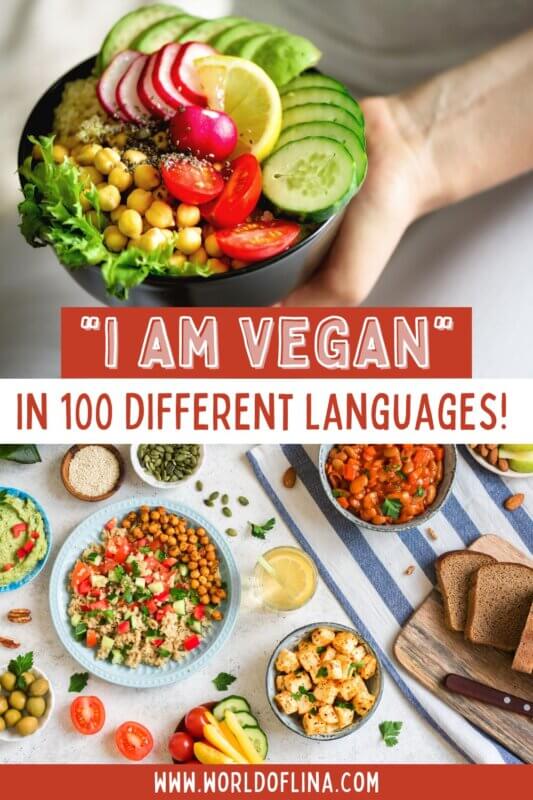
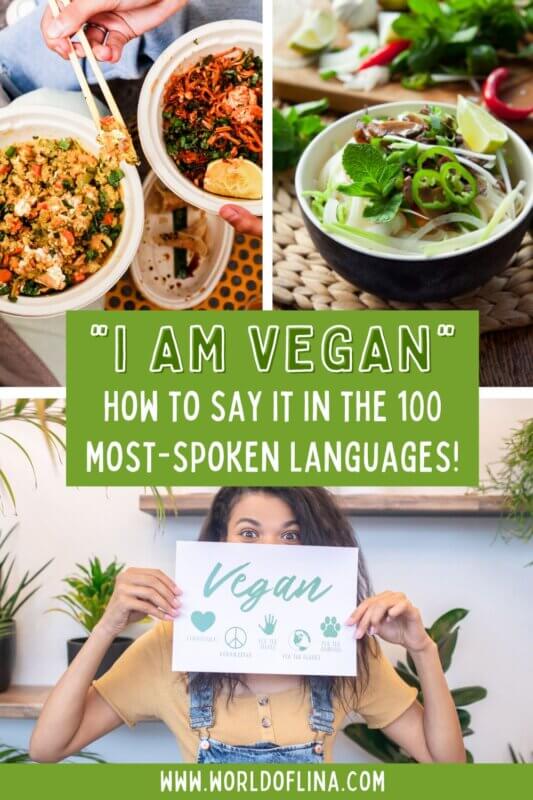
Do you want to travel like me?
Here are some of my favorite travel tips and resources:
Flights: I prefer using CheapOair or Skyscanner to book flights. The destination everywhere feature is perfect for finding some cheap deals!
Accommodation: Booking.com is my favorite site to find some great hotel deals. I do love staying at a local place as well, thus I book an Airbnb every now and then.
Travel Insurance: There are many reasons why travel insurance is important and I never travel without one. I use the simple and flexible one from SafetyWing that protects me against unforeseen events.
Tours: I love taking tours to explore destinations like a local. My favorite website to book them in advance is GetYourGuide.
Camera Gear: I use a Nikon D5300 camera with an 18-105 mm and a 10-20 mm wide-angle lens to take my photos.
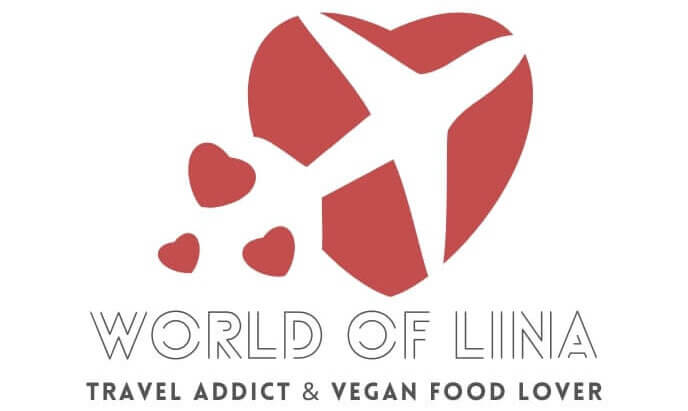

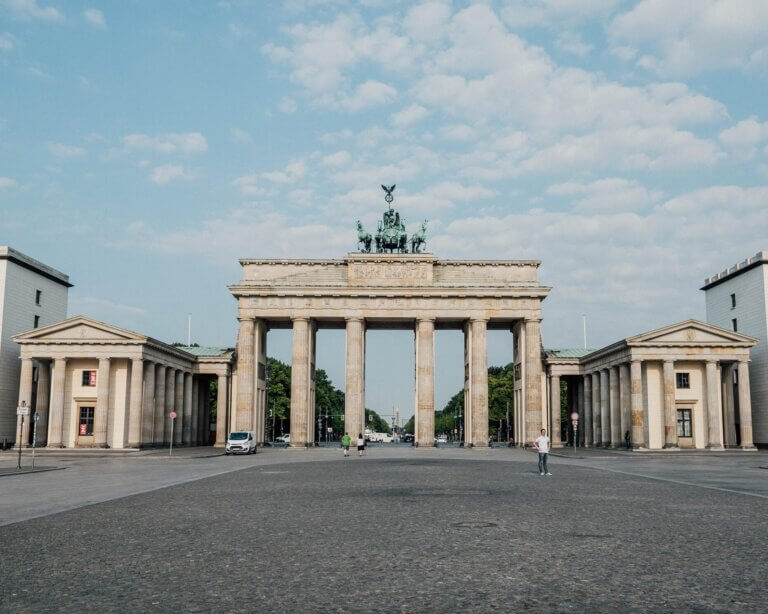


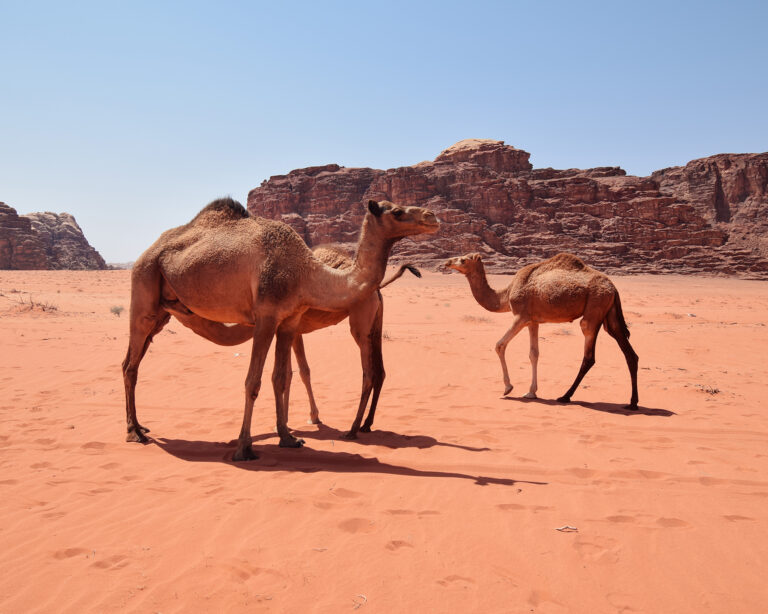

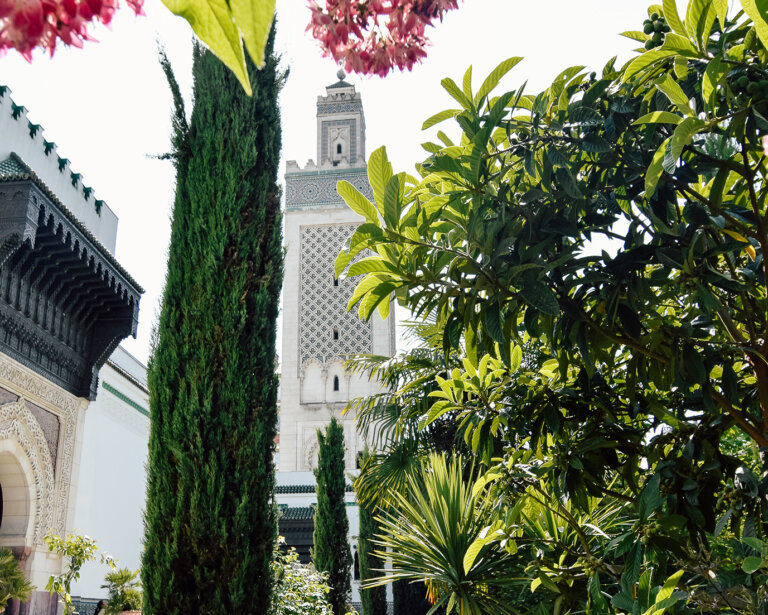
Great job! I know how hard it was to find all translations but it’s done! Now we can enjoy your post and have a little fun (for me Wu (Shanghainese) language sounds so funny 😀 just like trying to say a few words, but comes out only letters 😀 ).
Thanks a lot Sandra 🙂
yeah it’s interesting to see how it varies from language to language and how easy or difficult it sounds ?
Wow! This is such a helpful and important article Alina! I’m not vegan, but I will keep this blog post handy for all my vegan friends who I travel with every so often. 🙂
Thanks so much Taylor 🙂
This is a great post 🙂 I haven’t seen one like this before. I love learning how to say things in other languages.
Thanks Cristina! I also find it really interesting 🙂
Wow this is amazing! I am so impressed that you put this together! It is always a struggle to communicate dietary restrictions when you travel.
Thanks Bettina! It was a lot of work but fun 🙂
This is so super helpful! Thank you so much for putting this together! It’s always so tricky to travel to new countries where you don’t speak the language when you are vegetarian or vegan. We kinda struggled with it when we were in Japan haha! Definitely saving this 🙂
So happy you find it helpful Nele!
What a really cool article! Super neat to see it translated into so many different languages. Great work!
Thanks so much Sara 🙂
This is so much fun Alina! Love the idea!! 🙂
Thanks a lot Aswani ☺️
Wow, great job putting this together! This is a really useful post. 🙂
Thank you! It took me a while but I’m so happy it’s online 🙂
This is fantastic! I’ve got this blog saved. It will be such a helpful tool on future travels
I’m so happy you find it useful Lucy 🙂
Oh this is so so useful for vegan travelers!
I hope it is haha! 🙂
This list is so helpful! Thank you!
Happy you like it!
Alina, this article is really helpful and important! Even though I’m not vegan, I will keep this blog post easily accessible for my vegan friends whom I travel with from time to time.
I’m very happy you find it useful!
Such is so much fun Alina! Love the idea!! 🙂
Thanks Ella!